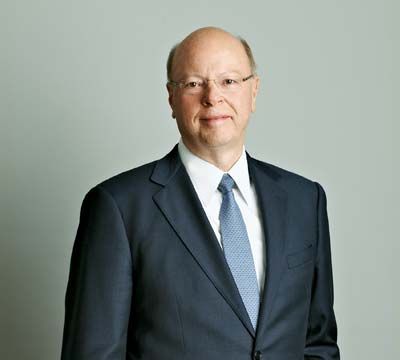Robert Francis rfrancis@bizpress.net
On June 11, Dallas-based Texas Capital Bank announced a big change. Texas Capital CEO George Jones announced his planned retirement from Texas Capital Bancshares Inc., parent company of Texas Capital Bank, at the end of 2013. At the same time, Keith Cargill was promoted to CEO of Texas Capital Bank and COO of Texas Capital Bancshares. Cargill will become president and CEO of Texas Capital Bancshares upon Jones’ retirement. The announcement was a big change for the bank, but it still keeps leadership among the three – Jody Grant, Jones and Cargill – who founded the bank in 1998 and previously worked together at Fort Worth National and Texas American Bank. Fort Worth Business Press Editor Robert Francis spoke to Cargill last week.
Tell us about starting Texas Capital Bank? Jody, George and I all worked together at former Fort Worth National, Texas American Bank and that’s where a lot of the principles that we have built and founded a bank on were learned. We came back together after the debacle of the 1980s where nine of the top 10 banks did not survive, including Texas American Bank. We stayed in touch and were friends after we had gone our separate ways. Some of us had stayed in banking and others, like Jody, went elsewhere. Jody went to EDS. [Grant] had an even bigger vision of what we might do beyond building a Dallas bank and that was to build a statewide banking company like we once had. He believed and we agreed after we went back and did our homework and due diligence – we believed the market was ready for the presence of another statewide banking company that would cater to privately owned and family-owned businesses and we wouldn’t try to be a retail bank with a branch on every corner. We wanted to raise enough capital that we wouldn’t spend years and years building very small incremental gains and have such a limited legal loan limit that we would only be able to take care of very small companies. We wanted to raise enough capital – and we did $80 million – to have a $10 million legal loan limit versus the typical $1 million or $2 million that a new bank would have. That gave us the opportunity to go after the more stable second and third generation companies in Texas, not just the early stage first-generation companies. That gave us a broader market to focus on right away.
What do you consider Texas Capital’s philosophy? We talk about having a partnership culture and being a strategic partner with our clients and enjoying the ride together. It’s not just the common pitch; it’s more of being a business partner and strategic partner with our clients. Internally we talk about that. We’re more like a partnership culture that you’ll find in a boutique PR firm or law firm. It’s not that common in banking to have a collaborative structure like we have. The business model is ideally to convert every one of our clients to be our biggest advocates and salespeople. We want to motivate our clients so that this is such a different strategic relationship with Texas Capital that they believe their friends really should meet us. That is a very powerful economic model. It works for the shareholder and it works for our clients. It incentivizes our bankers to take great care of every single client and not focus on just new clients each year.
Any economic worries on the horizon for the banking industry? The banking industry is going to be challenged as the Fed begins to decide how much stimulus they’re going to feed into the system. No one knows at what pace they might back off. At some point it’s not going to make sense to create this much new currency into the money supply. As that shift occurs, of course, interest rates will move up. Banks that are well-positioned, banks that are asset sensitive like we are, will benefit from rates rising. Banks that have a challenge on their assets being fixed – having a lot of fixed rate loans and their liabilities and deposits repricing more quickly – in other words, banks that are liability sensitive – are going to be more challenged. We’re thankful we’re at a position at Texas Capital to not have much exposure at all to rates moving up. It should benefit us because our rates are heavily weighted toward floating rates.







